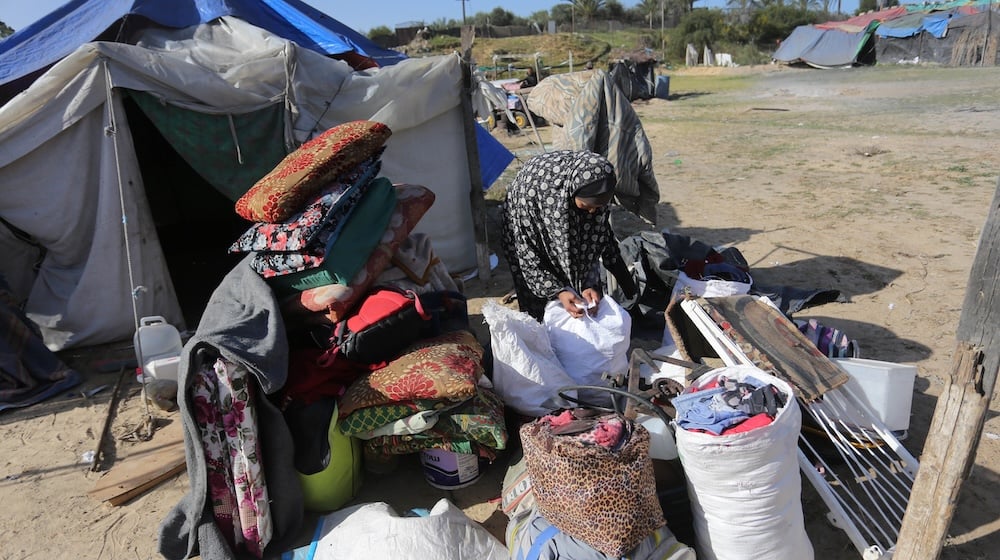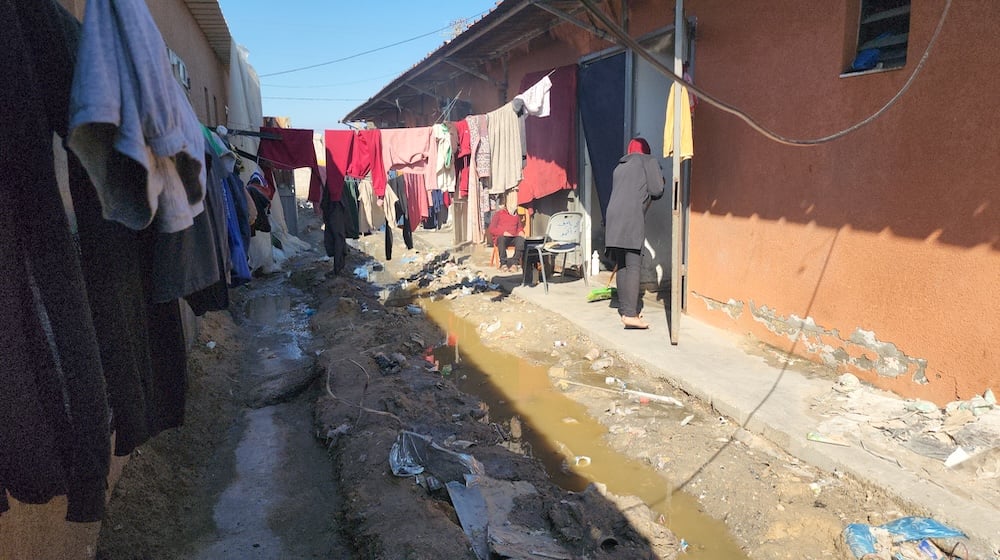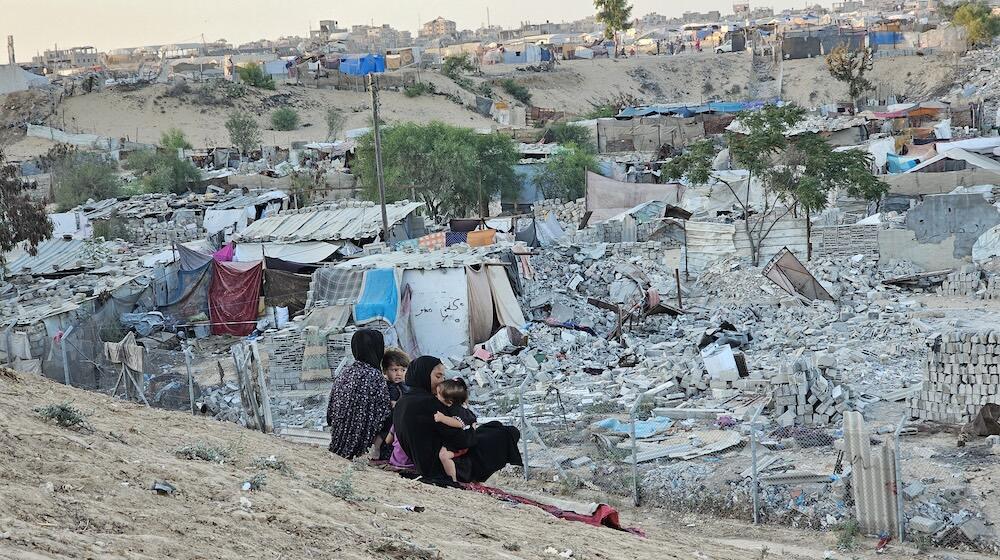GAZA STRIP, Occupied Palestinian Territory – “My pregnancy during the war was very difficult,” 28-year-old Nadia* told UNFPA, the United Nations sexual and reproductive health agency. “I was really afraid for the baby.”
Originally from northern Gaza, Nadia currently lives in Khan Younis in the south and has been displaced multiple times. As the conflict intensified in January 2024, the mother of four found herself pregnant again.
“I was scared that something would happen to him from all the stress, and because we had to keep moving from place to place.”
Her husband Rami* is also from Gaza, and had been working as a labourer in Israel before the war. In November 2023, Israeli forces detained him in jail for 18 days, along with many other workers from Gaza. Nadia’s world was shaken.
The constant displacement made it difficult for her to receive the healthcare she needed. Although she tried to make it to checkups at clinics run by UNRWA, the United Nations Relief and Works Agency for Palestine, the journey was often too dangerous. With prices for everything rocketing across Gaza, she also couldn’t afford the transportation costs, which have risen tenfold since the start of the war.
Emergencies amid upheaval
The upheaval took its toll on Nadia, and she went into labour a month early. “I think it was because of how scared I was, and that I was so tired all the time from walking and moving, trying to find a safe place,” she said.
“It took me about an hour and a half to walk from my tent to the hospital, while having contractions. I couldn't take a taxi because I didn't have the money.”
She gave birth at the UNFPA-supported Nasser Hospital in Khan Younis in August, but her newborn soon developed breathing problems and was placed in an incubator. Electricity shortages and power blackouts meant the incubator sometimes stopped working – a stark reminder of the conditions Palestinians in Gaza are facing.

The path to support and survival
Nadia’s story highlights the hardships mothers and pregnant women in Gaza grapple with, as healthcare services are overwhelmed and under-resourced. Early deliveries and miscarriages have reportedly surged due to the combined stresses of war, displacement, hunger and a lack of access to care.

UNFPA has been providing critical support, including cash assistance, to vulnerable women in Gaza and the West Bank to help them cover their basic needs and access essential services, especially healthcare. This is particularly crucial for more than 4,000 pregnant women who will give birth each month, as well as for survivors of gender-based violence with few, if any, other places to turn.
Before receiving the cash voucher, Nadia would walk an hour and a half to visit her son in the hospital. When she managed to save enough money, she would take a taxi or donkey-drawn cart, which currently costs almost $10; before the war, the same trip would have cost the equivalent of one dollar. Sleeping at the hospital was mostly impossible, as it was overcrowded with patients and people seeking safety.
“With the UNFPA voucher, now I can pay for the taxi, buy diapers, and cover other essential needs,” she explained; the voucher is worth around $280 and enabled her to visit her baby more often.
A glimmer of hope
More than half of all hospitals in Gaza are not functioning. Whenever access and resources allow, UNFPA provides medical supplies, dignity and hygiene kits, medicine and equipment to 12 hospitals now overwhelmed with spill-over patients. Health workers are also receiving capacity building in sexual and reproductive health services and gender-based violence protection.
Since January 2024, UNFPA’s cash assistance programme has reached over 12,000 women across the Occupied Palestinian Territory, prioritizing those most at risk, such as survivors of gender-based violence and pregnant and breastfeeding women. Through a partnership with the World Food Programme, the funds are distributed via both traditional and mobile payment methods, ensuring aid can be secured even amid severe impediments and cash shortages.
“I was desperate, and it was a lifesaver for me,” said Nadia. “Now I can see my son, hold him, and be there for him. I hope I can leave Gaza when this is all over and get my son the healthcare he needs.”
*Names changed for privacy and protection



